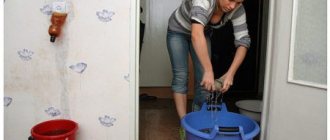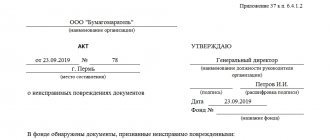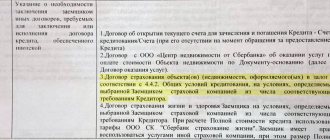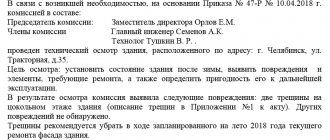Disagreements between neighbors due to utility failures are among the most common disputes. There are often situations when the owner fails to obtain compensation for damage caused by flooding of the apartment. The reasons are banal: illiterate interaction with the culprit, non-compliance with the procedure for compensation, ignoring legal subtleties in the procedure. Let's consider how to avoid these mistakes and achieve compensation for material and moral damage.
Flooding of an apartment is a violation of the rights of the owner. It is almost always associated with damage: furniture, floor and wall coverings, appliances, etc. become unusable. Article 15 of the Civil Code of the Russian Federation stipulates that persons whose rights have been violated may demand compensation for losses. Moreover, losses are understood as those expenses that the owner will incur to restore repairs, purchase equipment, furniture, that is, to bring the apartment to its previous condition. Often, victims are able to compensate for moral damages. And it takes place in this situation, because utility accidents and the subsequent proceedings are a lot of stress and can cause health problems.
Who can be the culprit for apartment flooding?
Flooding of an apartment can occur due to the fault of different persons:
- A neighbor (and this can be not only the owner, but also the tenant of the apartment above).
- Management Company.
- Capital repair funds.
- Other persons : plumbers, installers, other persons who performed poor quality work before the flood. On a note! In this situation, the damage is still compensated by the owner in whose apartment the work was carried out. And he already has the right, in a regressive manner, to reimburse the workers who performed installation and repair work.
Most often, neighbors and the management company are to blame for apartment flooding. Their obligation to compensate the injured party is strictly prescribed by law.
- According to the Housing Code of the Russian Federation, the owner must maintain the apartment in proper order, not violate the rights of neighbors, and comply with the rules for the use of residential premises (Article 30).
- According to the same legal document, the management organization must provide services and perform work that complies with the regulations. She is responsible to the owners if services and work were provided/performed improperly and led to adverse consequences (Article 161, Part 2.3).
It is always possible to compensate for the damage caused. Often the reason is trivial: after the apartment is flooded, the owners act illiterately. Important! The court may refuse to consider a claim if:
- The culprit of the flood was incorrectly identified.
- The culprit was not present when the act was drawn up.
- A poor quality independent assessment was carried out.
- There were no attempts to pre-trial resolve the “water” conflict between neighbors or between the owner and the management company.
After a flood, despite the stress, you need to act thoughtfully and strictly in stages. Below we will describe how to properly compensate for damage from an apartment flood.
You've been flooded. Your first actions
The first thing to do in case of flooding:
- De-energize areas flooded with water.
- Shut off the water risers, go up to your neighbors and ask them to do the same.
- Call emergency services to fix the problem in the water supply system.
All these actions will help stop flooding and avoid more damage. Then the bureaucratic and legal part begins. The outcome of pre-trial or judicial settlement of the problem depends on how you carry it out. In other words, it depends on whether you can achieve compensation.
On a note!
Already at this stage it is worth enlisting the support of a lawyer for compensation for damage after flooding of the apartment .
Step No. 1 - drawing up an act on the bay
An apartment inspection report is a document that can be used to influence the culprit and prove his guilt. He contains:
- information about the date and cause of flooding, the person responsible;
- a detailed description of the damage caused to decoration, furniture, and other property. It is not enough just to mention damage to certain items or finishing materials. The report describes the nature of the damage, its size in millimeters, centimeters, meters. It is allowed to record the area of damage (in square meters);
- information about the cause of the leak. The most common reasons include negligence of residents (both the owners themselves and neighbors), roof leaks, factory defects in water supply elements, poor quality work of a plumber, a broken pipe, etc.
When drawing up the report, a commission of three specialists from the operating organization, the owner, the culprit, and witnesses (if necessary) must be present. Otherwise, the act may be declared invalid.
Step No. 2 – conducting an independent assessment
The procedure is designed to determine the exact amount of damage and can only be carried out by an accredited appraisal company. Requirements for the appraiser: he has an SRO permit and has professional liability insurance. The assessment report, which is drawn up by the appraiser based on the results of the procedure, is an official document that has weight in judicial proceedings.
Important! An independent assessment is carried out at the initiative of the injured party. You don’t have to order it if the culprit agrees to compensate for the damage, and you have documents that confirm the costs of recent repairs, the purchase of furniture, and household appliances.
Step No. 3 – pre-trial interaction with the culprit
The most favorable outcome in case of flooding of premises is compensation for damage through peaceful means. When you have the assessment report in hand, try to resolve the conflict peacefully. Several interaction options are possible:
- Drawing up an agreement for compensation for damage by flooding the apartment directly. The neighbor's intentions to compensate for the damage must be supported by documents. Lawyers in their practice use a receipt for compensation for damage caused by flooding of an apartment, signed by the culprit. If he refuses compensation, then with a receipt it will be easier for you to recover money for the damage caused in court.
On a note! A settlement agreement is the most favorable outcome of the situation with flooding of premises. Firstly, if the culprit cooperates, it avoids legal costs and saves time. Secondly, drawing up an agreement is not difficult. It does not require strict form and notarization
.
The parties can reach a settlement agreement without an independent assessment if they agree on the amount of compensation.
- Drawing up a pre-trial claim. You can direct it in several ways:
- Send by post with acknowledgment of receipt.
- Deliver in person (provided you receive a receipt).
A pre-trial claim is necessary if the culprit refuses to compensate for the damage. On a note!
Drawing up a pre-trial claim is an optional step. If the injured party has been refused compensation, then he can bypass this stage and immediately go to court with a claim for compensation for damage from the flooding of the apartment .
Separately, it is worth dwelling on the direction of the management company’s claim. This step is optional, but desirable for the following reasons:
- In the management agreement for an apartment building, the claims procedure for resolving disputes is usually indicated as mandatory. If you do not submit a claim, you will violate the terms of the contract.
- The activities of management companies are regulated by the law “On the Protection of Consumer Rights”, among other things. If the management company delays with compensation, then in the future - after a court decision on compensation for damage - it will be obliged to pay a penalty. Its amount is 1% of the amount of damage for each day of delay. The delay begins to count after the 10th day, that is, the management company must compensate for the damage within 10 days after receiving the pre-trial claim.
The assistance of a lawyer in this situation is a powerful tool for influencing the management company. Experts will list the consequences that threaten the management company if it does not satisfy the requirements. Sometimes even an oral “dialogue” with the management company is enough for it to compensate for the damage caused.
Step No. 4 – conflict resolution through court
If the guilty party refuses to compensate for material damage, there is only one option - to file a claim for compensation for damage caused by the flooding of the apartment.
- The defendants in a legal dispute are those responsible for the bay: the owner or tenant of the premises above, the management company. Judicial practice shows that a claim is often filed against an insurance company that unlawfully refused to pay compensation.
- If the amount of damage caused is more than 50,000 rubles, the conflict is resolved by the district court. Claims for amounts less than 50,000 rubles are considered by the magistrate court
The following documents must be attached to the statement of claim:
- Documents for the apartment (extract from the Unified State Register of Real Estate, certificate of ownership - for real estate registered before July 15, 2016).
- Documents confirming the status of the culprit (agreement in the Criminal Code - if the Criminal Code is at fault, an extract from the Unified State Register for the neighbor's apartment - if he is the culprit).
- Act on the bay of the apartment.
- Independent appraiser's report.
- Documents confirming the sending and receipt by the culprit of the pre-trial claim.
- Receipt for payment of state duty.
If the interests of the plaintiff in court are represented by another person, then a power of attorney or a document that confirms the authority of the representative must be attached to the claim.
Bay of the premises. How to guarantee compensation for damages?
The problem of recovering damages due to flooding of premises has appeared on the territory of the Russian Federation since the 80s of the last century, since it was then that large-scale construction of multi-storey residential buildings began.
Nowadays, due to the development of the economy and the population’s need not only for housing, but also for non-residential premises, the construction of multi-storey buildings is even more widespread, which is why the problem of recovering damage to premises is more relevant than ever. Most often, regardless of the affected object, the parties (the victim and the perpetrator) fail to resolve the issue peacefully, and therefore the court puts an end to the dispute. It should be noted that since non-residential premises are more often occupied by legal entities, due to jurisdiction, the arbitration court began to make significant changes to the established judicial practice of courts of general jurisdiction.
The purpose of this study is to identify current solutions to problems arising in the recovery of damage caused by flooding of premises.
When a room floods, it is necessary to take measures to identify the culprit behind the flooding. In this case, first of all, you should take measures to record the damage caused and contact the organization that operates the house or the emergency dispatch service. As can be seen from the Determination of the Moscow City Court dated March 12, 2012 in case No. 33-743, the plaintiff’s claim was rightfully denied, since the plaintiff, having identified the fact that his apartment was flooded, did not take appropriate measures to fix the damage caused to his property, and did not apply as required. order to the emergency dispatch service, or the organization that operates this house with a statement about the flooding of his apartment and drawing up an inspection report of the premises, did not record the time, place and degree of damage to the property, without which the expert could not make an unambiguous conclusion about the cause of the flooding of the plaintiff’s apartment and the culprit of the damage caused to property.
It has been established that the legislation does not indicate the need for the person demanding compensation for damage caused to property to have the status of owner of the said property. Thus, by Decision dated February 16, 2012 in case No. 33-3931, the Moscow City Court explained that in order to recover losses, the person demanding compensation must prove a violation of his right, the existence of a causal connection between the violation of the right and the losses incurred, as well as the amount of losses.
It should be taken into account that if there is more than one perpetrator, the rules on joint and several recovery of damages do not apply to these types of disputes. Thus, the Moscow City Court, in its Ruling dated February 10, 2012 in case No. 33-3995, found that while imposing joint and several liability on the perpetrators for the damage caused, the court of first instance did not take into account that joint and several liability applies if it is provided for by the contract or by law. Since obligations resulting from causing harm are tortious obligations, then, based on the circumstances of the case, the damage caused to the plaintiff is compensated on the basis of Art. 1064 of the Civil Code of the Russian Federation. This rule of law does not provide for joint and several liability for damage caused. Since the defendants are co-owners of the apartment in equal shares from which the flood occurred, they should also be jointly responsible for compensation for damage.
It should also be borne in mind that the culprit in causing damage is always the person in whose area of responsibility the object is located, as a result of whose malfunction the flood occurred. Thus, the Resolution of the Tenth Arbitration Court of Appeal dated September 27, 2011 in case No. A41-42547/10 established that since an agreement was concluded between the parties on the maintenance of the common property of an apartment building, responsibility for damage caused by the common property is borne by the person in the zone responsibility of which such objects are located.
If the premises that suffered damage as a result of the flood are insured, the damage caused by the flood is compensated by the insurance company, and if the insurance payment is not enough to cover the damage, the amount in excess of the payment is recovered from the guilty party.
At the same time, the insurance company has the right to recover losses compensated as a result of insurance (subrogation). From the content of paragraph 5 of the Review of judicial practice in civil cases for the second half of 2004 (Bulletin of the Supreme Court of the Komi Republic of 2004 N 12) it follows that the case materials must contain information about the reasons for the flooding of the apartment, the court must establish whether there is fault defendant in causing damage. The mere fact that the defendant is the owner of the apartment is not a basis for satisfying the insurance company's claim for damages.
Thus, an insurance company, when going to court with a claim for compensation for harm, must prove that the defendant caused damage to it, but is not required to prove the presence of guilt in the actions of the defendant who caused the harm. The burden of proving the absence of guilt in their actions is borne by the person who caused the harm. In the absence of evidence, the guilt of this person is presumed, and the damage caused is subject to recovery. This conclusion comes from the Resolution of the Federal Antimonopoly Service of the North-Western District dated May 29, 2007 on Case No. A21-6271/2006, the Resolution of the Federal Antimonopoly Service of the North-Western District dated March 26, 2007 on Case No. A56-22151/2006, the Resolution of the Federal Antimonopoly Service of the Central District dated 5 May 2003 in Case No. A54-3136/02-C19.
As is known, in order to recover damages it is necessary to establish the guilt of the person from whom the damages are recovered. Disputes regarding the recovery of damage caused by flooding of premises are no exception. Guilt is usually confirmed in two ways: by the absence of a denial by the Defendant regarding the fact of the flood, or by relevant written evidence - a report on the flood drawn up by the relevant operating organization and an examination of damage assessment (an examination to determine the market value of repair and restoration work), including a forensic examination. As can be seen from the Determination of the Moscow City Court dated February 29, 2012 in case No. 33-6579/2012, the Determination of the St. Petersburg City Court dated July 20, 2011 No. 33-11008/2011, in addition to the specified evidence, witness testimony can be taken into account indications.
It must be taken into account that the act of gulf must be drawn up with the direct participation of the guilty party. If there is no guilty party, the latter must be summoned to draw up a report on the bay and to assess the damage caused by the bay. If the above is not observed, as can be seen from the Resolution of the Ninth Arbitration Court of Appeal dated April 16, 2012 in case No. A40-10254411-61-719, the existence of a cause-and-effect relationship between the actions (inaction) of the guilty party and the infliction of damages by the actions (inaction) will not be proven. the latter, and therefore there will be no grounds for satisfying the requirements. In addition, based on the Determination of the Moscow City Court dated February 20, 2012 in case No. 33-5397, we can conclude that in order to determine the volume and amount of damage caused, including items that were damaged, it is necessary to indicate in the bay act a complete and detailed list of the scope and extent of damages caused, including the items damaged.
When recovering damage caused by flooding of premises, the injured party often puts forward claims related to moral damage caused by the flooding. However, at present, this damage is usually not recovered. When resolving demands for the recovery of compensation for moral damage from the guilty party, the court takes into account that this moral damage is associated with the property damage of the injured party caused by the flooding of his property, and the recovery of such compensation in this category of cases is not provided for by law. In addition, the infliction of moral harm by the actions of the guilty party in this category of cases is usually quite difficult to prove, since there is no list of evidence that helps establish the fact of causing moral harm. This conclusion suggests itself from the Determination of the Moscow City Court dated February 16, 2012 in case No. 33-4140, Determination of the Moscow City Court dated February 14, 2012 No. 33-2620.
Also, often in the arbitration process, demands are made for the recovery of, among other things, lost profits. For example, when, in addition to the premises itself, damage from the flood was caused by a product that should have been sold, but was not purchased because it had lost its consumer properties. By a resolution of February 7, 2012 in case N A40-61429/11-45-540, the Ninth Arbitration Court of Appeal found that lost profits in this category of cases can be recovered only if the injured party presents evidence that the lost profits occurred solely in connection with room flooding. In addition, it is necessary to take into account the provisions of the Resolution of the Plenum of the Supreme Court of the Russian Federation No. 6, the Plenum of the Supreme Arbitration Court of the Russian Federation No. 8 of 07/01/1996. “On some issues related to the application of part one of the Civil Code of the Russian Federation.”
The rules of the Federal Law “On the Protection of Consumer Rights” do not apply to claims for recovery of damage caused by flooding of premises. In particular, the rules on the possibility of going to court not only at the location of the defendant, but also at the place of registration of the injured party, do not apply. This follows from the Decision of the Moscow City Court on February 14, 2012 in case No. 33-4452.
In the process of this category of cases, the arguments of the guilty party often arise that the object, as a result of the operation (inoperability) of which the flood occurred, belongs to the common property of the apartment building, and therefore the responsibility should be borne by the corresponding operating organization. When proving the opposite, one should be guided by the Rules for the maintenance of common property in an apartment building, approved by Decree of the Government of the Russian Federation of August 13, 2006 N 491. Moreover, these rules establish that the composition of common property is determined, among other things, by the owners of premises in an apartment building for the purpose of fulfilling the obligation to maintain common property, in connection with which it is recommended to involve the relevant operational organizations in the legal process to determine the exact composition of the common property. This position was expressed by the Moscow City Court in its Ruling dated February 14, 2012 in case No. 33-4349.
Thus, some key issues regarding the recovery of damage caused by flooding of premises are discussed above. In conclusion, I would like to draw attention to key issues, the correct solution of which will help to avoid a number of problems when recovering damage caused by flooding of premises through the courts:
1) Regardless of the extent of the flood and the damage caused, first of all it is necessary to take measures to record the damage caused and contact the organization operating the house or the emergency dispatch service to draw up the appropriate documents, including a flood report. In this case, the participation of the guilty party, or its notification of the inspection of the premises to determine the damage, is mandatory;
2) It is very important, when recording the damage caused and drawing up the relevant documents, to indicate in them the volume and size of the damage caused, including listing the items that were damaged, indicating what kind of damage was caused to them. It should be taken into account that this document must be signed by all participants in the survey with the involvement of witnesses and the guilty party;
3) To recover damages, the person demanding compensation must prove a violation of his right, the existence of a causal connection between the violation of the right and the resulting losses, as well as the amount of losses;
4) Before going to court to protect rights, it is necessary to identify the person in whose area of responsibility the object is located, as a result of whose operation (malfunction) the flood occurred;
5) If the premises that suffered damage as a result of the flood are insured, the damage caused by the flood will be compensated by the insurance company. If the applicant, in compliance with the above, makes a direct claim to the person who caused the harm, the latter, upon discovery of the facts of insurance of the damaged premises, will be able to declare unjust enrichment of the person who made the claim and the claim may be denied. Thus, in order to avoid negative consequences, if the premises are insured, it is necessary to submit a document indicating the fact of contacting the insurance company with a note that payment was refused;
6) To establish the guilt of the person as a result of whose actions (inactions) the damage was caused, a flood report drawn up by the relevant operating organization and an examination to assess the damage (an examination to determine the market value of repair and restoration work) are usually presented. In controversial cases, a forensic examination is carried out directly in court.








